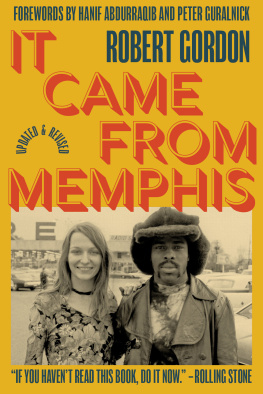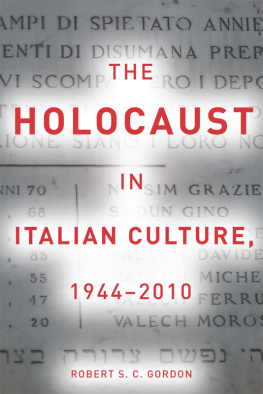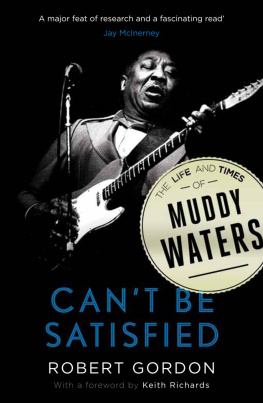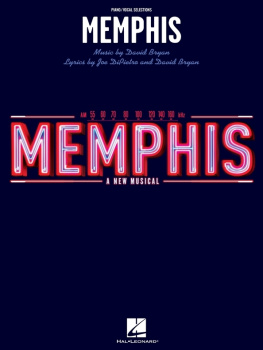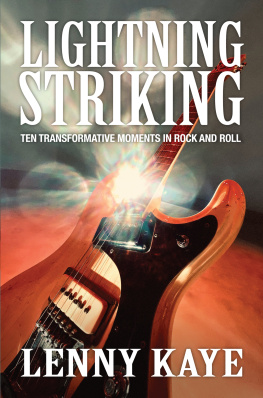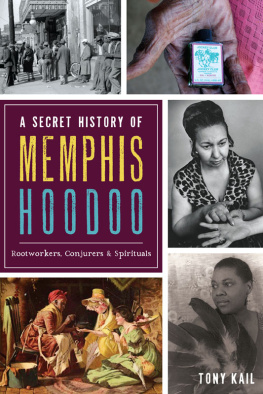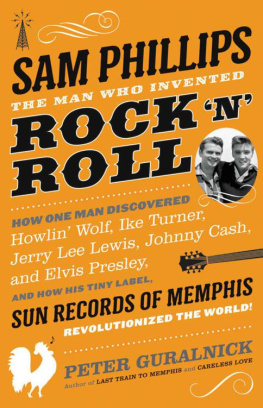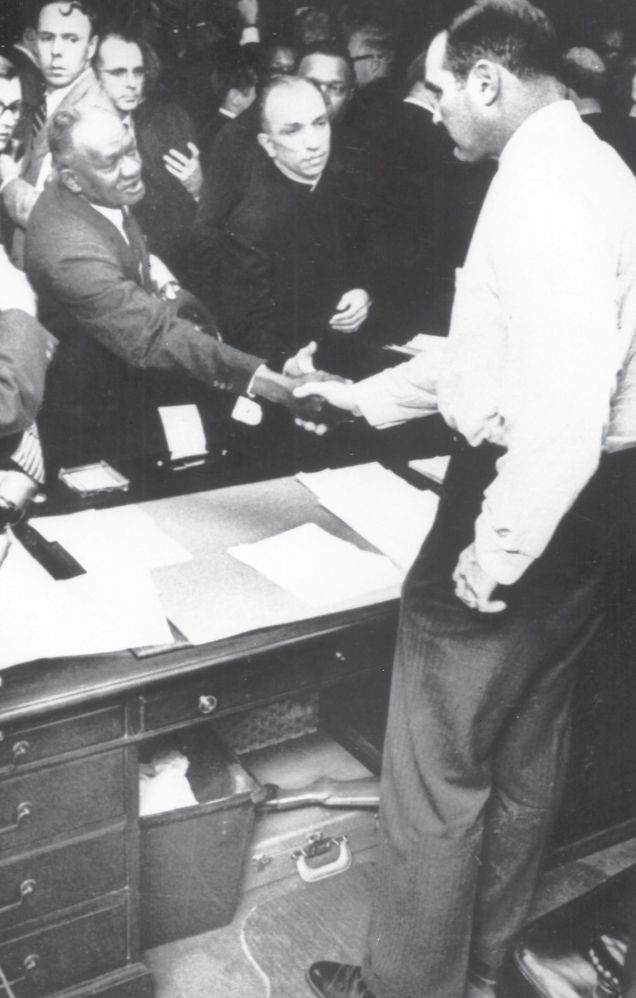Contents
Page List
Guide
IT CAME FROM MEMPHIS
SELECTED BOOKS BY THE AUTHOR
Memphis Rent Party
Respect Yourself: Stax Records and the Soul Explosion
Lost Delta Found: Rediscovering the Fisk University-Library of Congress
Coahoma County Study, 1941-1942
Cant Be Satisfied: The Life and Times of Muddy Waters
SELECTED FILMS
Best of Enemies
Very Extremely Dangerous
Respect Yourself: The Stax Records Story
Johnny Cashs America
William Egglestons Stranded in Canton
Shakespeare Was A Big George Jones Fan: Cowboy Jack Clements Home Movies
Muddy Waters Cant Be Satisfied
IT CAME FROM MEMPHIS
ROBERT GORDON
About the frontispiece:
The day after the murder of Dr. Martin Luther King, Memphis Mayor Henry Loeba shotgun beneath his deskgreeted ministers in his office, shaking hands with Rev. Joseph P. Toney while Father Nicholas L. Vieron (behind the clasped hands) looked on. The ministerswho represented congregations in wealthy East Memphis and the impoverished inner citywere impressed with Loebs cordiality in the face of such a potentially uncomfortable confrontation. But Loeb gave no indication he was willing to compromise with the strikers. He remained intransigent for twelve more days.
Memphis Commercial Appeal photographer Robert Williams took the picture during the 1968 sanitation workers strike. I had thought it was shot by Mr. Ernest Withers but he replied, Cant be mine. They wouldnt allow a black person behind the mayor like that. Photograph Preservation and Special Collections Department, University Libraries, University of Memphis/
Commercial Appeal
About the cover photo:
Left is Marcia Hare/Misty Lavender; right is unknown.
Taken in the shopping center at Poplar and Avalon, circa 1975.
Rear cover photograph: Charlie Feathers.
Front and rear cover photographs Tav Falco
Copyright 1995 and 2020 Robert Gordon
Foreword copyright 1995 Peter Guralnick
Foreword copyright 2020 Hanif Abdurraqib
All rights reserved. No part of this book may be used or reproduced in any manner whatsoever without written permission except in case of brief quotations embedded in critical articles and reviews.
For more information:
Third Man Books, LLC, 623 7th Ave S, Nashville, Tennessee 37203.
ISBN 9781733350150
Design by Maddy Underwood
For Tara, With love
We knew what it was like to be born in the old world. We had everything to consume and nothing to conquer. We had to invent everything ourselves.
Jean Collet, Godard
CONTENTS
BY HANIF ABDURRAQIB
BY PETER GURALNICK
FOREWORD
I have spent much of my adult life thinking about what makes an American city. The people, of course. But also the simple machinery of it: its history, its sounds, its politics. All of the things that build the axis it turns on. I have been thinking about this, specifically, as I love and live in a city thatlike manyhas shifted over time, its past forgotten.
Memphis is an American city that, for some, lives as a mythology first. Like how I knew exactly what the blues were before I ever heard them. I understood the blues as a feeling, or as a condition. Something that lives inside the body until it has no other choice but to claw its way out. I had no people from Memphis that I knew of. When my family took our summer trips, Memphis was never a city on the list. But, I knew its history. Its assassinations and its uprisings. I knew its music too, of course. Id see the photos: Isaac Hayes, glistening and adorned in gold chains. Arthur Lee, howling on a guitar, hair wrapped. I turned over the vinyl of Alex C.
In this way, I came to know the sound and presence of Memphis as a set of ideas first. Not the healthiest way to interact with any place, but when I was younger, it was the only way I had. An immensely flawed, but still romantic way of seeing it. There were people there, who looked like my people, fighting for freedom with whatever they had. I believed in that, I needed to. Regions are such a funny thing. In the Midwest and the South, it is almost nothing to drive six or seven hours at a time. In Ohio, people talk about places like St. Louis, Chicago, and Memphis like theyre just right there because in some ways, they are. Any drive under eight or nine hours is an easy day trip. Especially if youre driving west or south, where the highways tend to be a bit more clear, free of police hovering behind signs or among the trees.
What Im saying is, I could have gone to Memphis almost any time I wanted to. In my late teens and early twenties, it was not uncommon for me to scrape together gas money and drive until I didnt have anymore. I didnt end up in Memphis for the first time until March of 2010. Alex Chilton had died just a week or so earlier, and there was a local memorial being planned for him. This was in the days just as social media was expanding, and getting information on the fly was easier. I saw someone post about a memorial for Chilton and Minglewood Hall, and I got in my car and started to drive south, getting to Memphis about two hours before it kicked off.
But, it was just two months earlier when Id come across this book for the first time. One of those old local record store guys (you know the kind) overheard me in the shop talking about Big Star, and how I used to hear one of my neighbors singing songs of that first Anita Ward album. He pulled this book out from a shelf behind him, tossed it on top of my record pile, and told me that I had to read it.
If there is one thing that writing about place, and history, and time should do, its that it should take the grainy, blurry photos embedded in a persons mind, and offer them a type of clarity. Reading this book in 2010, even then too late, was like being offered a view of Memphis for the first time. Robert Gordon is one of our greatest reporters. Aiming not for one large, sweeping introduction, but instead opting for small, intimate introductions, happening over a series of pages. Even now, as I reread this vital text, I am wishing that it were a season where traveling wasnt such a treacherous undertaking in the time of my writing this. This is the magic of the book, though. Now, just as it did when I first read it, it makes me want to leap out of my chair and make the now-familiar road trip. I want to touch the places that still are, and mourn the places that once were. Robert Gordon understands that the making of any American city rests in its people first. And he has such a generous and wonderful eye for the movements of people. A gift, as is this book.
Hanif Abdurraqib, July 1, 2020, Columbus, Ohio
FOREWORD
For the last twenty-five years, more or less, Ive been walking the streets of Memphis looking for ghosts, listening for echoes, trying to construct a vision in my mind of what it must have been like. I must admit, I was egged on by Stanley Booth and Jim Dickinson, I was prompted by the lure of history (Sun, Stax, and beyond)but until I met Robert Gordon I was beginning to think I was crazy. And now Im not so sure which one of us is.

